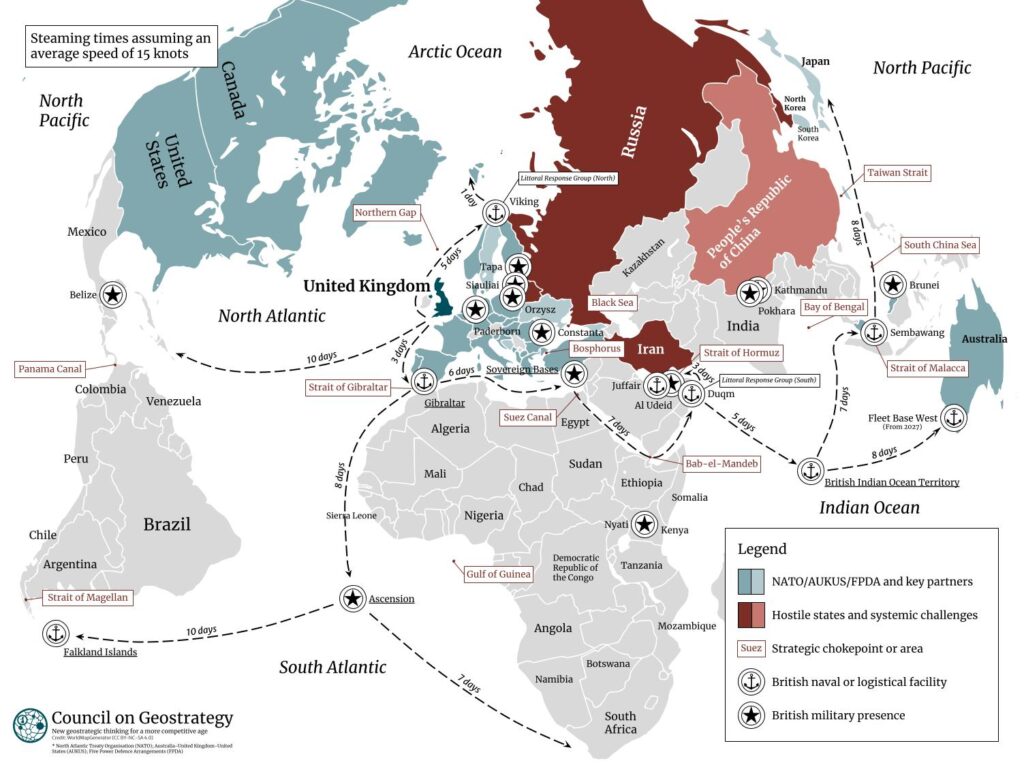British exporters, whether in goods or services, are special. In 2016, around 8.8% of companies in the United Kingdom (UK) exported at all. Exporting companies distinguish themselves by being more sustainable and profitable than non-exporters, generating ideas, inventions and innovations which enable them to succeed despite a plethora of global competitive forces. Through good times and bad, British exporters engage with the world. During complex times it is worth remembering these successes.
The UK’s export strategy aims to achieve £1 trillion worth of exports by 2030, and they are currently above pre-Covid-19 levels at £882 billion. Of this total, £425 billion were goods, and £423 billion services, an increase of 18% and 14%, respectively, in the same period last year. Indeed, there has never been a time in the UK’s history when the value of British exports of services exceeded £400 billion. This highlights just how successful UK exports and investments are, and how closely the British public and private sectors are working to implement trade policy with the Department for Business and Trade. Based on this success, Britain may even meet this £1 trillion target sooner than 2030.
The UK is the world’s fifth largest exporter, second largest services exporter and eighth largest manufacturer. The UK is also still maintaining trade with its largest trade and investment partners, the United States (US) and Europe, the latter largely thanks to the Windsor Framework. Indeed, Britain remains the second greatest recipient of FDI in Europe. But it is not just in Europe that the UK is successful; there have been a sequence of British policy decisions stemming from the Integrated Review’s Indo-Pacific ‘tilt’, which amount to a national and shared endeavour to succeed in the region.
In August 2021, the UK became a ‘Dialogue Partner’ to the Association of Southeast Asian Nations (ASEAN) and formed the world’s most important strategic agreement with the US and Australia through AUKUS around two months later. Since then, it has entered into an ‘quasi-alliance’ with Japan through the Hiroshima Accords, setting the stage for the acceleration of the Global Combat Air Programme to build a sixth generation stealth aircraft. The UK also became in 2023 the first European power to achieve accession to the Comprehensive and Progressive Agreement for Trans-Pacific Partnership, which constitutes nearly 15% of global gross domestic product. This all combines to grant the UK rich strategic, exporting and investment opportunities.
Leveraging prosperity and strategic advantage from the sea
Strengthening trade, digital and finance relationships are the prerequisites of global prosperity. But prosperity depends on security. And security depends on power. It is worth remembering that 96% of all UK trade is carried by oceans, and 99% of global financial transactions, and the Internet itself, is carried by an undersea network of cables. Because the UK is an archipelago, and a global maritime, trading and investment power, it is natural for it to look to the oceans, where around 70% of the world’s population live within 200 kilometres of a coastline.
For this reason, the Royal Navy is fundamental to the UK’s trading, financial, scientific and technological success. At this moment, both of Britain’s aircraft carriers are at sea – one leading a multinational capability in the North Atlantic – while Littoral Response Group (South) is cruising to the East Mediterranean. Building on the deployment of Carrier Strike Group 2023, the deployment of a new Carrier Strike Group in 2025 will demonstrate British leadership from the Euro-Atlantic to the Indo-Pacific. It will help cement the new trade agreements with Australia, New Zealand and Japan.
Yet Britain has other cards up its sleeve. In 1904, Adm. Jackie Fisher said that there were ‘Five keys lock up the world…Singapore. The Cape. Alexandria. Gibraltar. Dover.’ Today, one would add the Panama Canal, the Strait of Hormuz, and others, but the basic truth remains the same (See Map 1). Possession of bases and facilities near maritime choke points can be catalysed as a strategic advantage – they act as portals between the world’s oceans – and it is in the interests of a maritime power to secure free and open oceans upon which global trade flows.
Map 1: The Royal Navy’s global reach

Nearly 120 years on from Fisher’s comments, it is remarkable to think that the UK still has influence over several of these chokepoints: the English Channel, the Strait of Gibraltar, the Suez Canal (from the Sovereign Bases on Cyprus) and the Strait of Malacca, via the logistics facility in Singapore which supports the Five Powers Defence Arrangements between the UK, Singapore, Malaysia, Australia, and New Zealand. The UK also looms over the Strait of Magellan from the Falkland Islands.
Conclusion
Using Britain’s defence assets and diplomacy in the public domain to enable trade and finance in the private sector, these deployments and facilities enable the very freedom needed to trade successfully. When so many across the world face so many challenges, it is important to remember that with every successful export and investment made, a contribution is made to the domestic prosperity which heals and binds the UK, and enables greater hope and prosperity for many more overseas.
These mutually supporting relationships are key to British prosperity in a highly contested world. Today, the UK looks with equal opportunity to markets from Asia, North America and Europe. The Integrated Review and its refresh balanced the interests of the UK in the Euro-Atlantic with those in the Indo-Pacific, in what can be called a ‘horizontal geostrategic plane’; what happens in one theatre affects the other. In other words, they are indivisible. And British prosperity depends on both.
Dr Carl Hunter OBE is Chairman of Coltraco Ultrasonics.
Join our mailing list!
Stay informed about the latest articles from Britain’s World